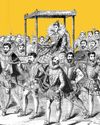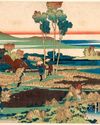
The Russo-Turkish War of 1877-78 was fought between the Russian Empire (more correctly, an Eastern Orthodox coalition led by Russia, which included Bulgaria, Romania, Serbia and Montenegro) and the Ottoman Empire. It was the last, and most important, of a series of conflicts fought between the two empires dating back to the 17th century. Its causes are deep-rooted and complex, but the 1877 conflict began on 24 April, when the Russian Tsar, Alexander II, declared war on the Ottomans to come to the aid of Bosnia and Herzegovina, and Bulgaria, who had begun a rebellion against Ottoman rule. It would end in a Russian coalition victory ten months later following a savage campaign that saw tens of thousands killed and countless more wounded. There were several sizeable actions fought during the conflict, one of the most notable being the Battle of Shipka Pass, itself a series of bloody actions fought for control of the vital pass in the Balkan Mountains.
RUSSIAN STRATEGY
Bitter experience of earlier conflicts between the Russians and Ottomans had led to Turkey building a string of fortresses to guard its European provinces from future attacks. Nevertheless, Prussian-born Russian general Hans Karl von Diebitsch had managed to break through these formidable defences in 1829 and advance on Constantinople, allowing Russia to dictate subsequent peace terms. In 1877, Russian strategy was simply to repeat Diebitsch's earlier victory.
This story is from the Issue 133 edition of All About History UK.
Start your 7-day Magzter GOLD free trial to access thousands of curated premium stories, and 9,000+ magazines and newspapers.
Already a subscriber ? Sign In
This story is from the Issue 133 edition of All About History UK.
Start your 7-day Magzter GOLD free trial to access thousands of curated premium stories, and 9,000+ magazines and newspapers.
Already a subscriber? Sign In

STALIN HAD CONTINUED WEST AFTER BERLIN?
Having used the Allies for his own ends, the Soviet dictator plots to overthrow the rest of Europe

THE GLORIOUS FIRST OF JUNE
ATLANTIC OCEAN, 400 NAUTICAL MILES WEST OF USHANT 28 MAY - 1 JUNE 1794

LIFE AS AS A GODDESS
Jasmine Elmer uncovers the complexity and darker sides of ancient deities and delivers history with soul

TUDOR FASHION TIPS
From farthingales and ruffs to codpieces, ten ways to achieve the styles of the Tudor court

THE FIRST AMERICANS
Discover indigenous life before the colonists landed

THE LAVENDER SCARE
How a national fear of communism led to the American government outing and firing thousands of gay and lesbian workers

STARS BEHIND THE BARS
Ten iconic celebrity mugshots and the stories behind them

The Making of JAPAN
The rise of imperial power and a flourishing of the arts and culture in the Land of the Rising Sun can be traced back to the Asuka period

SIEGE OF TOULON
TOULON, FRENCH REPUBLIC SEPTEMBER-DECEMBER 1793

REDISCOVERING THE FORGOTTEN LIVES OF QUEER MEN
We speak to the editor of a groundbreaking new collection that uncovers what life was like for gay men when homosexuality was illegal in Britain